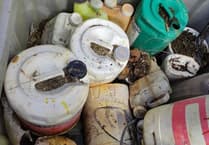Possibly the greatest hurdle we face in the transition to a clean, low carbon economy is overcoming the vested interests of the companies and individuals whose profits stem from the polluting industries and technologies that will be replaced.
Well-funded marketing teams and lobbyists promote the interests of the oil and gas industry, car manufacturers, agrochemicals and housing developers. Those who have most to lose or gain from future government policy are the biggest political donors. For polluting industries, lobbying to delay legislation is often cheaper than investing in changing their practices.
Fossil fuel companies are major donors to political parties and to the thinktanks that influence government policy and the conversations in the media. While they accept the scientific consensus on climate change and have committed to net zero by 2050, they still see big profits in prolonging their business for as long as possible.
A forward-looking government would seek ways to redirect the profits of the fossil fuel industry to building the future energy system that we need, without the costs falling on the public. It would ensure that the profits of polluting companies like those of the water industry are directed towards cleaning up their pollution.
A responsible government will see its purpose and role as actively managing our economy to keep the UK competitive during the inevitable transition. This requires new legislation, new ideas and regulations, and a can-do attitude to change that allows us to introduce new technology and phase out the old polluting and fossil fuel technologies as soon as possible.
Government can prioritise training and opportunities for young people, along with the reskilling of workers in redundant industries, to fulfil the new jobs that will bring us economic prosperity and keep our economy competitive in the long term.
Government is responsible for awarding grants, research money and contracts to private companies to enable the energy transition. We need investment in upgrading the national grid and to support UK manufacturing of new technologies like wind, solar and batteries. This is how we will guarantee the UK’s energy security.
To provide our food security while also protecting nature, government can allocate farm subsidies to support farmers to move to the most effective farming practices, helping them to reduce their reliance on huge inputs of agrochemicals, nitrogen fertiliser and diesel for machinery.
Government legislation can require new homes to be built to the highest standards of energy efficiency. Reforming domestic gas and electricity pricing will link the significant energy savings from heat pumps and home insulation with savings for bill-payers.
In transport, government needs to set regulations for the car industry that stop the race to bigger and bigger SUVs and to support our domestic producers to supply small cheap electric cars that offer an affordable alternative to Chinese imports.
To live in a prosperous modern society that has skilled jobs, energy security, food security, quality housing and clean air and water, the most significant choice we have is to vote for whichever party understands these challenges and has the will to tackle them.





Comments
This article has no comments yet. Be the first to leave a comment.